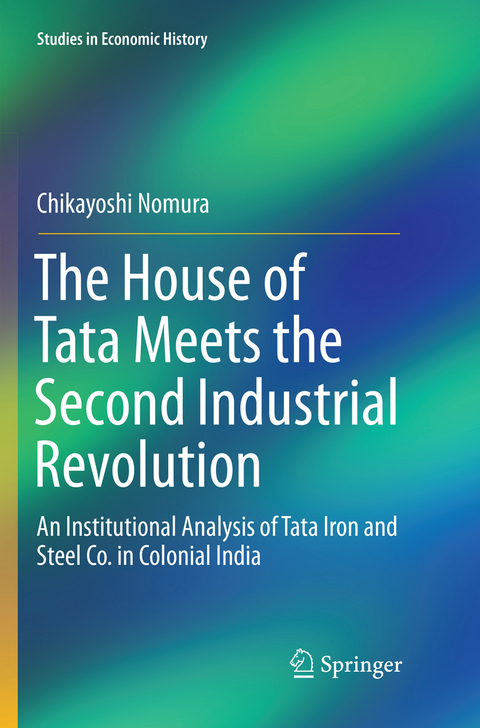
The House of Tata Meets the Second Industrial Revolution
Springer Verlag, Singapore
978-981-13-4212-7 (ISBN)
One of the driving forces of India’s high growth rate since the 1980s is the expansion of modern business corporations whose origins date back to the colonial era in the mid-nineteenth century. This monograph explores the historical foundation of the growth of such corporations in colonial India, guided by a substantial collection of documents of Tata Iron and Steel Company, whose rich records have not received the due attention they have long deserved. As clarified by numerous economic and business historians of leading industrialized countries since the works of Douglass North and Alfred Chandler, this study as well proposes that the development of modern business corporations in colonial India was broadly supported by the reciprocal evolution of economic institutions and corporate organizations. Adding a new perspective to the business and economic history of colonial India, the analysis also provides an important case study of the development of corporate business in the non-Western world to the study of global business history.
Chikayoshi Nomura is an associate professor of the Graduate School of Literature and Human Sciences, Osaka City University, Japan. He obtained a Ph.D. from the University of Tokyo in 2005. His research interest includes issues in the area of the economic and business history of colonial India, institutional development, and imperialism.
1 Introduction.- 2 The development of the modern business corporation in 19th century India: Building the foundations for the emergence of TISCO in the 20th century.- 3 TISCO during the decade of the 1900s: The Formation period.- 4 Initial failure to produce competitive steel, capitalization problems and the institution of an internal financing system.- 5 Labour unrest and the introduction of a direct labour management system.- 6 The financial crisis of the 1920s, the introduction of tariff protection and “imperial commitment”.- 7 Continuing labour unrest, efficiency enhancing schemes and improvements in labour productivity during the late 1920s.- 8 The 1930s: Failure in export-oriented development and conservative attitudes towards further expansion.- 9 Conclusion.- Index.- Bibliography.
| Erscheinungsdatum | 21.01.2019 |
|---|---|
| Reihe/Serie | Studies in Economic History |
| Zusatzinfo | 22 Illustrations, color; 3 Illustrations, black and white; XXII, 287 p. 25 illus., 22 illus. in color. |
| Verlagsort | Singapore |
| Sprache | englisch |
| Maße | 155 x 235 mm |
| Themenwelt | Geisteswissenschaften ► Geschichte ► Regional- / Ländergeschichte |
| Geschichte ► Teilgebiete der Geschichte ► Wirtschaftsgeschichte | |
| Wirtschaft ► Allgemeines / Lexika | |
| Wirtschaft ► Betriebswirtschaft / Management ► Planung / Organisation | |
| Wirtschaft ► Betriebswirtschaft / Management ► Unternehmensführung / Management | |
| ISBN-10 | 981-13-4212-1 / 9811342121 |
| ISBN-13 | 978-981-13-4212-7 / 9789811342127 |
| Zustand | Neuware |
| Informationen gemäß Produktsicherheitsverordnung (GPSR) | |
| Haben Sie eine Frage zum Produkt? |
aus dem Bereich


